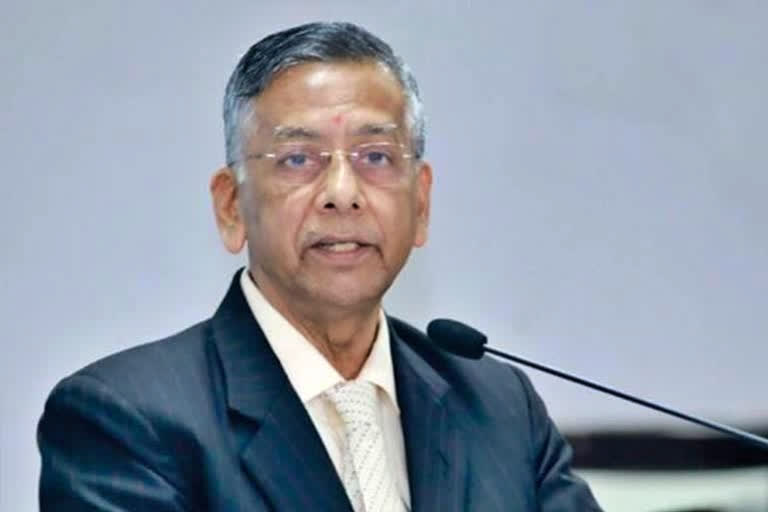New Delhi: The Attorney General of India, R Venkataramani, Saturday said that the government has to stop "overloading" the Supreme Court with its endless appeals. "It is important that the government stops overloading the Supreme Court with endless statutory appeals alongside seamless and huge flow of cases from High Courts.
The conversion of the Supreme Court into a small casual court list must stop," said the AG. He was speaking on the occasion of Constitution Day celebrated in the Supreme Court today. Prime Minister Narendra Modi, union law minister Kiren Rijju, CJI DY Chandrachud and other judges of the apex court were present on the occasion.
Venkataramani said that all departments must have a resolution wing and it's not necessary to always involve them in legal disputes. "We need a permanent law commission for legal reforms wing, research wing, academic wing. We need to decongest our High Courts," the AG said.
"I look forward to a day when the west comes to learn from us. The colonialism of minds and people would be free," he said. Union Law minister Kiren Rijju speaking at the event said that the government is trying constantly to integrate technology and justice to make information available to all citizens.
Also read: 'We the People' in preamble of Constitution is commitment that made India mother of democracy: PM
He said that pre-litigation is being made available through tele-law services and 25 lakh people have benefited from it. "In the next 5 years, one crore people will be rendered with advice," said Rijiju.
Highlighting the importance of local languages in the legal field, the law minister said that Bhartiya Bhasha Samitihas been constituted and is being chaired by former CJI SA Bobde. "It has listed words like civil, criminal etc. which are most used in judiciary and has already made a glossary of 65000 words," Rijiju said adding that AI will be used to make justice more accessible.
CJI DY Chandrachud speaking at the event also emphasied on technology integration. He said that the paramount challenge before the judiciary was to ensure that justice is accessible to all. "It is essential that the judiciary reaches people and not expect the people to reach out to the judiciary. The infrastructure of technology must not be dismantled," the CJI said .
He said that the National Judicial Data grid is a repository of 77 lakh judgments of the High Courts that are available to every citizen free of cost. He emphasised on development of the district judiciary as it serves the people first. He said that it should rise above the mindset of the subordinate judiciary. The CJI also heads the Supreme Court e-committee which has been actively working especially since the pandemic to make things more technology friend.
